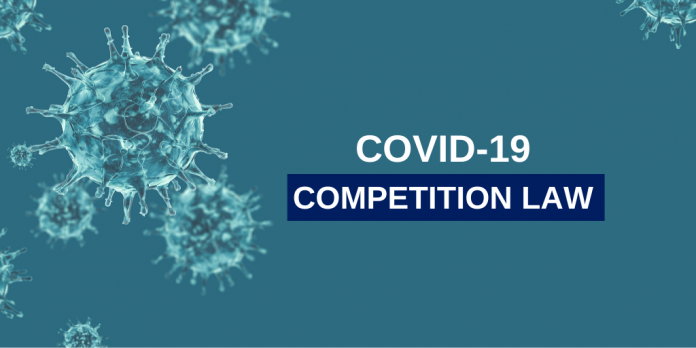This summary is written by Nandini Biswas, NMIMS School of Law, Bengaluru.
Introduction of the Host- Shubham Bansal
Shubham Bansal is a lawyer turned marketer. He has done his Post Graduate diploma in Intellectual Property Rights from Indian Society of International Law (ISIL) and BA. LLB (Hons) from Delhi Metropolitan Education.
He opted for an internship in a start-up at the end of my law school. He joined them as a legal and business development intern, and within a month, he became a project manager by devising a new business model and heading a team of six. As a part of start-up culture, he had to perform several roles such as sales, recruitment, operation and marketing.
This helped him to find his passion for marketing; he, along with his team generated 2X number of leads at almost the same cost using Facebook, Titktok platform.
Being a law graduate, he realised that the legal industry desperately needs to understand and utilise the true potential of marketing and branding, since it differentiates them from the rest. This made him start consulting to legal professionals to grow their practice, by using various techniques such as active users of social media, strategising, content marketing, planning, etc.
Currently, he is at LawSikho, heading the marketing team and managing India’s largest blog, i.e. iPleaders.
Introduction of the guest- Nitish Sharma
He is alumni of SLS Pune 2014 batch having pursued BBA LLB. He is an advocate practicing in Delhi with his area of specialization being Competition Law, Gaming Law and litigation. He is working as a partner of Gaggar & Partners, Solicitors and Advocates, New Delhi since the last one year.
Prior to this, he was a part of anti-trust team in Cyril Amarchand Mangaldas. He has also represented the CCI (Competition Commission of India) in various cases and has also represented private clients in front of CCI and other judicial forums of India.
Summary of the Webinar- Effects of Covid-19 in Competition Law practice
What is the background of competition act in force?
Prior to the Competition Act, 2002, The Monopolies and Restrictive Trade Practices (MRTP) Act, 1969 was in force in India. In 1999, the government felt that this act was very old and strictly needed a change. Thus, the Competition Act, 2002 was introduced in 2002. This act was amended twice, once in 2007 by the Competition (Amendment) Act, 2007 and the second time in 2009 by the Competition (Amendment) Act, 2009. However, Section 3 and Section 4 of the act came into existence on 20th May, 2009. The 1st case filled under this act on 26th May, 2009.
How can grievances arriving from this act be addressed?
Grievances arising under this act will be solved by the Competition Commission of India (CCI) governed by the act. There are 3 ways in which the dispute arising out of this act can be resolved-
- CCI can take suo-moto action of any dispute that it comes to know about
-
- Reference can be filed by another authority with the CCI
- Information can be filed before the commission under section 19
After a case has been reported to the CCI, it will hear the case and decide it.
What is the current scenario of this act?
Recently, certain amendments had to been suggested and a review committee report was filed in 2018
Based on that a draft bill has been released with the following changes-
-
- The definition of Cartel has been altered.
- The term ‘buyer cartel’ is sought be introduced by the draft bill
- Under the current act, if anyone had filed a case under section 19, they were not allowed to withdraw the. The draft bill might amend this.

What changes did CCI go through amidst this pandemic and lockdown?
Certain notifications were issued in order to comply with the lockdown rules and ensure that they are able to work smoothly. Such notifications are-
-
- 19th Feb, 2020- Notification by Ministry of Finance vide office memorandum which clarified that COVID 19 will be considered as Act of God and Force Majeure will be invoked accordingly and due procedure of law will be followed.
Following this, CCI came up with the following notifications-
-
- 17th March, 2020- Notification stated that said that CCI will adjourn all matters which were listed for hearing and all non-essential visits will be discouraged.
- 23rd March 2020- CCI notification stating that all cases filed under section3 and section 4 shall be adjourned till 30th march and all filing before the DG will be adjourned as well.
- Since CCI comes under Ministry of corporate affairs (MoC), the MoC on 24th March 2020 notified that all compliances in relation to companies act and the allied rules and other risks faced by company’s LLP will be relaxed.
- 30th March 2020- Notification stated that CCI will shut its offices till 14th april 2020. Further, certain directions were issued for smooth working which included adjourning cases listed till 14th April among various others.
What has the jurisdiction of CMA (competition and market authority) in UK done in times of COVID 19?
The CMA is governed by the Competition Act, 1998. The CMA temporally relaxed rules for supermarkets to share data with each other under certain subjects like stock markets, etc. It stated that the Supermarkets will be allowed to share certain other information with each other, but prohibited the sharing information about limiting supplies or increasing prices or any information by which the market would suffer.
What has the European Commission (EC) done in times of Covid 19?
EC is one of the oldest commissions. The European Commission Network deals with the anti-trust laws. (anti-competitive laws are internationally known as anti-trust laws)
India follows the judgments of many such international jurisdictions dealing with competition laws and also cites their precedents while fighting cases in this subject. The precedents of ECNE are strictly followed in India.
ECNE declared that it would not intervene in the functioning of the businesses if the businesses are trying to provide products that are not openly available in the market. But, it has also specified that they can still enforce norms against anti-competition practices, like increase in prices, etc. by the supermarkets.
What has the USA done in times of COVID 19?
Federal Trade Commission (FTC) is the commission that deals with anti-trust laws in USA.
The FTC will hold accountable anyone who violates anti-trust laws in regards to manufacturing, distributing or sale of public health products like the ones manufactured by the pharmaceutical industry. FTC has issued notices to companies selling fraudulent products or manipulating prices and says that such practices are strictly forbidden especially during times like these. It also issued an advisory stating that anyone who would fix prices and rig bids of personal protection products like gloves, masks, etc. could face prosecution.
What has the South Africa done in times of COVID 19?
The Competition Commission of South Africa deals with the anti-trust laws over there. The Competition Commission will prioritise cases about rising prices of essential products to ensure that firms exploiting consumers are quickly prosecuted in times of COVID. Further, a specific team will be set up to investigate these complains to fast track the litigation process.
Will the Pharmaceutical industries dealing with products related to COVID would stand exempted from anti-competition regulations?
No. No sector can be completely exempted from the anti-competition laws since that would give rise to large scale anti-competition practices. In fact, certain guidelines can be issued to the pharmaceutical industries like not allowing spiking the prices of their products or issuing directions to wholesalers and retailers against false advertising and price hiking.
To what extent will the merger control business of law firms be affected in light of COVID 19
COVID 19 will not affect such a business of a law firm to a great extent. There will be just a delay and no there will be no bad affect.
How will COVID 19 effect the global market players who have a business in India?
The raw material supply and other supplies will be disrupted and their distribution chain will also be disrupted due to the lockdown norms. Further, if any company had once come on the scanner of CCI or received any notices and are operational now, they will have to carefully coordinate their information exchange with their competitors or distributers.
Is CCI right in not specifying any exemptions?
I personally feel that certain exemptions should be specified were the companies coordinating with each other and doing something for the benefit of the larger public in these times should be exempted like what the ECNE has declared.
If any company tries to increase prices of essential commodities in these times, will the CCI take action or will it fall under the ambit of Essential Commodities act?
There is no link between the two acts. Both, the Competition Act and the Essential Commodities Act have separate jurisdictions. Any such action will be taken under the relevant act.
Should competition laws be suspended or relaxed in India due to COVID 19, since other countries like Norway have done that?
No, competition laws should not be suspended since it will make room for the companies to indulge in anti-competition practices which will in turn affect the consumers. But, competition laws can be relaxed to an extent like the other international jurisdictions have done. Relaxation of such laws should be done to benefit the people in these times.
The government has declared hand sanitizers and masks as ‘essential commodities’ under Essential Commodities Act, do you think CCI should have brought out a similar measure and should have been keen in chipping in in these times?
CCI needs to be more pro-active in these times when there is high possibility of price hike and related mal-practices especially while dealing that are essential in these times. Further, I personally feel that CCI should come up with like similar jurisdictions in other countries have done.
LawSikho has created a telegram group for exchanging legal knowledge, referrals and various opportunities. You can click on this link and join:
 Serato DJ Crack 2025Serato DJ PRO Crack
Serato DJ Crack 2025Serato DJ PRO Crack










 Allow notifications
Allow notifications


